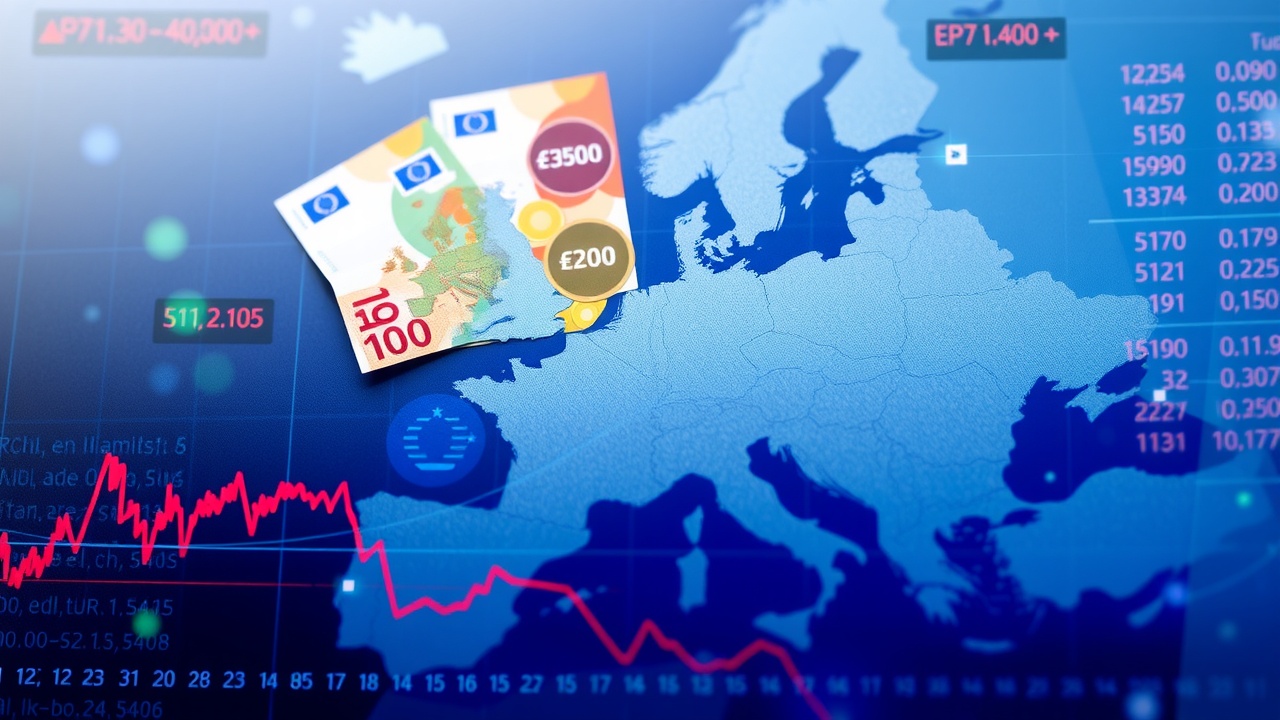
The Chemring Group appears to be in a good position to benefit from the increased military spending by European nations
Europe's defence industry is expected to benefit greatly from the amount of additional military spending that is anticipated to be allocated throughout the continent in the upcoming years. Defence spending by EU member states is predicted to increase by 1 point 8 percent of GDP in 2024 to 2 point 4 percent by 2027, or an additional 80 billion annually, according to research compiled by Goldman Sachs. By 2027, the UK has committed to spending 2 percent of GDP, or an additional 13 percent per year, bringing total annual spending to 80 billion.
Although the largest players in the sector, the national champions, and defense behemoths like BAE Systems, Rheinmetall, Leonardo, Safran, and Thales will ultimately hold the majority of this, a sizeable portion will also trickle down to the smaller players. Chemring Group (LSE: CHG) is one company that stands to gain the most from this strategy.
A captive defense market could be advantageous for Chemring.
Chemring doesn't appear to be one of Europe's most significant defense industry players at first glance. About 40% of its revenue comes from its sensors and information division, while 60% comes from its countermeasures and energetics division. The latter includes the company's cutting-edge plastic explosives division, one of the most significant in the entire European defense industry.
The French government-owned Frances Eurenco Group is Chemring's sole significant rival in Europe for sophisticated plastic explosives. Governments prefer to purchase from domestic vendors because it is challenging to ship explosives across international borders. The two companies that control the majority of the European market leave the rearmed European countries with limited options.
The increased demand from European countries is already helping sales. Resupplying Ukraine with explosives has become a top priority for the nation's military supporters, as the country fires about 10,000 shells every day. With a 932 million order backlog, up 24% year over year and roughly equal to more than three years' worth of revenue, Chemring reported "unparalleled demand for our specialist capabilities" in its full-year results for the year ending in October.
The business has announced plans to invest £200 million to increase manufacturing capacities in Norway, the US, and the UK in response to the demand, which is expected to continue to rise. A 90 million grant has also been given to the company to help fund investments in its Norwegian location.
Unfortunately, last year was a difficult year for the group sensors and information division, even though the countermeasures and energetics side of the business is doing well. Despite a 14% increase in revenue to 213 million, a change in order patterns resulted in a 30% decrease in order intake and a 37% decline in the division's order book. However, it is becoming apparent that Roke, the industry leader in sensors and information, is a major force in electronic warfare. Both the Hamas attack on Israel and Russia's invasion of Ukraine have brought attention to the growing importance of technology in combat.
Customers from Sweden, Lithuania, Latvia, the United Arab Emirates, and Japanthe latter being the first in East Asiaplaced orders with Roke last year. Therefore, despite some turbulence last year, the division is well-positioned to expand in the new era of defense spending.
Chemring's stock appears to be cheap.
It's hardly surprising that Chemring has drawn takeover interest given its market position. No formal offer surfaced, but earlier this year there were rumors that US private equity behemoth Bain Capital was considering making 390p per share for the group.
In actuality, given the group's critical role in European defense and the implications for national security, it might be challenging for a private equity firm with no European headquarters to assume control. However, the reported bid price does provide a ballpark estimate of the company's potential value.
The share price of Chemring Group.
Panmure Liberum has done the math for each of Chemrings' four primary business divisions in order to determine the company's valuation using a sum-of-the-parts approach, since the private equity playbook frequently entails dismantling companies and selling the individual parts to the highest bidder. In 2029, Roke is expected to have the second-largest revenue (304 million), behind the Energetics business. The broker placed a value of 810 million on Roke based on projected revenue (multi-year order backlogs make these figures relatively reliable). The estimated revenue of 334 million in 2029 suggests that Energetics could be worth up to 680 million, and businesses like BAE and Eurenco are likely to make an offer. The broker estimated that the remaining portion of the business might be worth about £250 million. Panmure Liberum's valuation of Chemring is 747p per share, which is more than twice the current share price when considering the total value of the company.
This highlights how valuable the company is, but it's also important to discuss some of the problems that have prevented the company from growing. A legacy US government contract for the supply of countermeasures, signed in 2016 and extended into 2025, is the largest of these. The group has made almost no profit from the contract. Additionally, it experienced production problems "due to adverse weather conditions" last year, and its plans to increase automation were delayed. At a time when the business ought to have been celebrating the changing tides in the defense industry, both of these problems had a negative impact on margins.
Assuming it isn't acquired before shareholders can fully profit, Chemring may be one of the best ways to participate in the European rearmament trade if it can overcome these problems and successfully increase production to satisfy rising demand.














Leave a comment on: One of the most exciting defense investment opportunities is Chemring Group